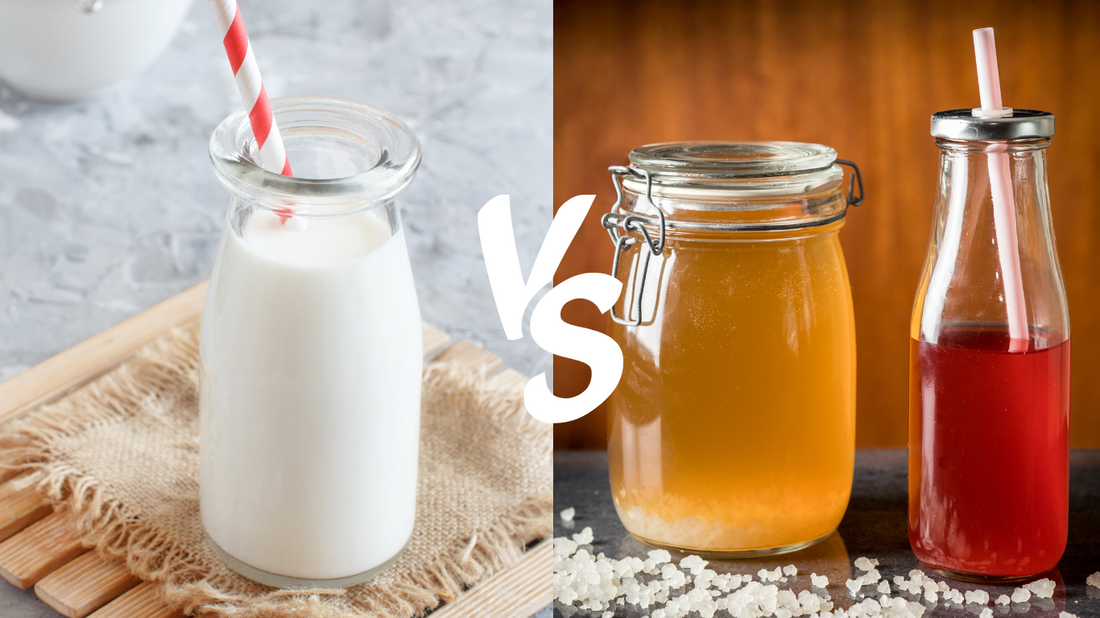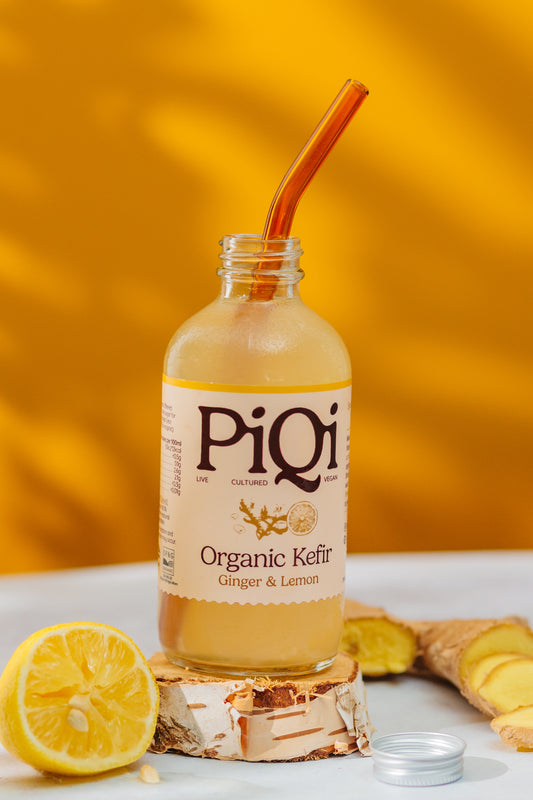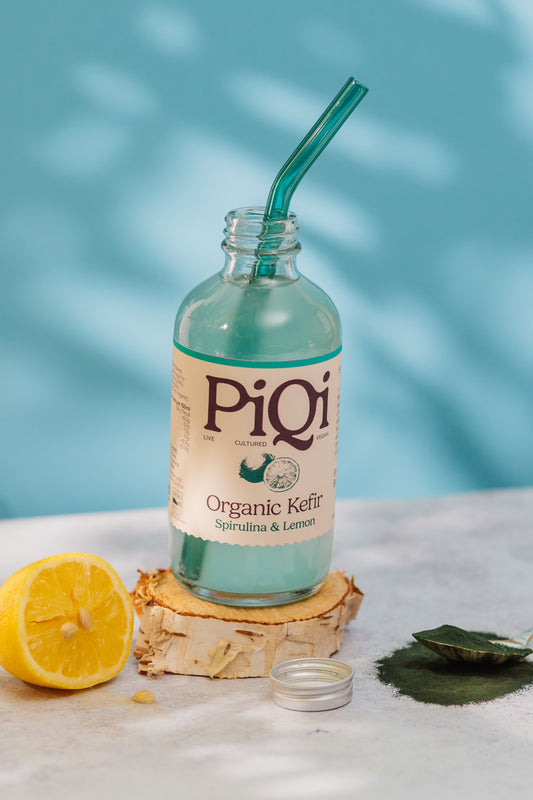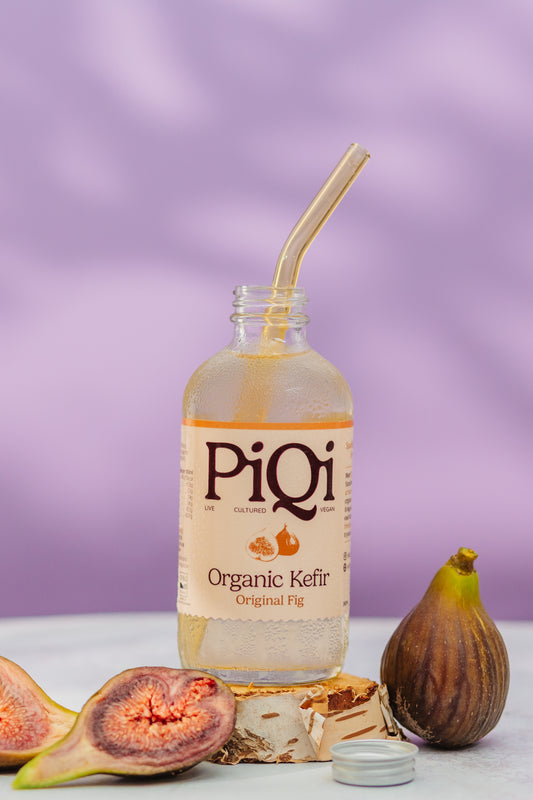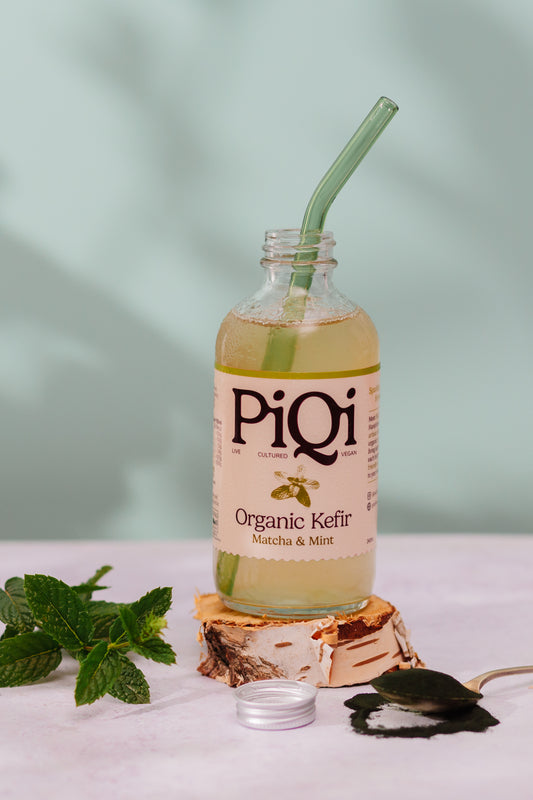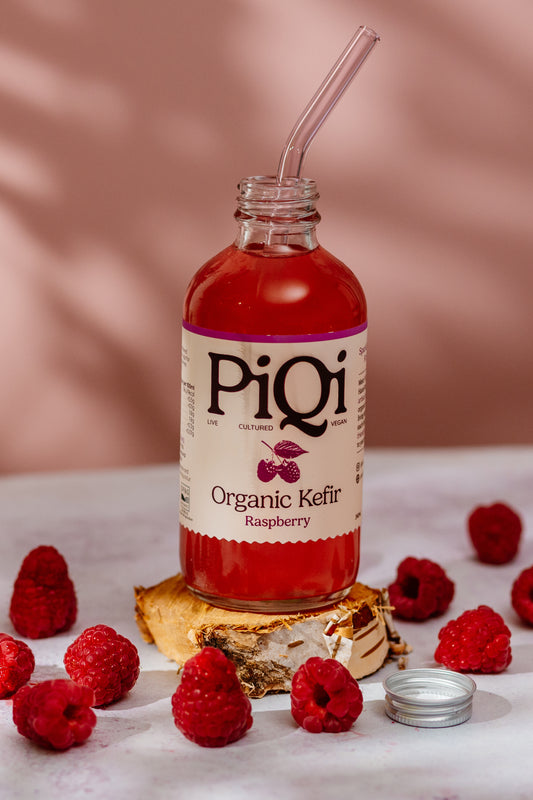Kefir (pronounced keh-feer) is a tangy and effervescent beverage with a long history. This fermented drink boasts a vibrant community of beneficial bacteria and yeasts, making it a delicious and gut-friendly addition to any diet. When you think of kefir, you're probably picturing milk kefir, a creamy thick drink found in supermarkets. But did you know there's another kefir out there, a fantastic alternative for those who avoid dairy?
Water kefir, with its own rich history from South America, has been enjoyed for centuries as a traditional health drink. So, which kefir is a better option? Let's explore both milk and water kefir to help you decide which one deserves a spot in your fridge.
Traditional dairy milk kefir:
With its origin in the Caucasus Mountains, milk kefir is a well-established drink in the UK. Made using kefir grains and cow or goat's milk, it ferments lactose (milk sugar) into lactic acid, resulting in a tangy beverage with a slight fizz. Milk kefir is a source of calcium, vitamin B12, and probiotics, potentially aiding digestion and gut health. However, for people who follow a vegan lifestyle and those with lactose intolerance, milk kefir is not a suitable option.
While kefir in itself has potential health benefits, it is also important to consider potential health risks of consuming milk, including:
- Skin Health: Dairy milk may trigger acne and worsen eczema, according to Healthline.
- Allergies: It is estimated that about 70 percent of the world's population has some form of lactose intolerance. In the UK almost a third of the population actively avoid dairy.
- Antibiotics: Trace amounts of antibiotics used in conventional dairy farming can sometimes be present in milk.
Water Kefir - the dairy-free sparkling probiotic drink:
Water kefir is believed to have originated in Mexico from a prickly pear cactus, and is brewed with sugar water and vegan kefir grains, resulting in a beverage teeming with beneficial bacteria and yeasts, just like its milk counterpart.
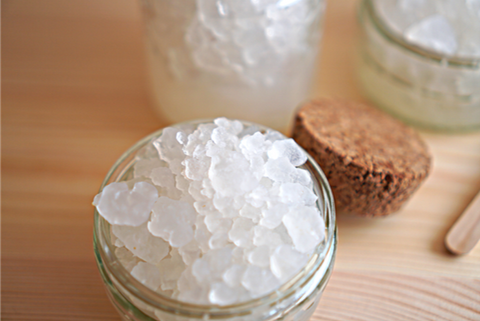
The fermentation process yields a slightly sweet, light and refreshing drink, naturally lower in sugar and calories than some commercial sodas and dairy kefir. It's also a good source of probiotics, B vitamins and minerals, promoting a healthy gut microbiome and supporting the immune system.
Does all kefir contain alcohol?
Both milk and water kefir contain trace amounts of alcohol, typically less than 0.5% ABV, as a byproduct of fermentation. This is similar to other fermented beverages like kombucha, kvass, and natural probiotic sodas. Commercially produced kefir will typically have lower alcohol content than homemade versions, which can reach up to 1.5% ABV.
How is kefir made?
There are two main methods for making kefir:
- Traditional Method: This method uses kefir grains, a complex symbiotic culture of bacteria and yeasts, as a starter (similar to a SCOBY in kombucha). The kefir grains are added to milk or sugar water and allowed to ferment at room temperature for 24-48 hours. This method is completely raw and unpasteurised.
- Commercial Method: Most commercially produced milk kefir undergoes pasteurisation to extend shelf life. While pasteurisation eliminates some potentially harmful bacteria, it also kills beneficial probiotic cultures. Some commercial producers may add back a few cultures after pasteurisation, but these products may not offer the same health benefits as traditionally made kefir. The finished beverage is more similar to store bought yogurt than traditionally made kefir.
Look for labels that state Raw or Unpasteurised to ensure your kefir is authentic.
The Great Kefir Debate: Why Water Kefir Might Be a Better Choice
While both milk and water kefir offer potential health benefits, water kefir holds several advantages:
- Lactose-Free: Perfect for those with lactose intolerance.
- Lower Sugar and Calorie Content: Water kefir can be naturally lower in both sugar and calories compared to milk kefir, depending on the amount of sugar used during fermentation.
- Sustainable and cruelty-free: Water kefir boasts a significantly smaller environmental footprint compared to milk kefir. A study in the Journal of Cleaner Production revealed that a single dairy cow's entire life cycle can require as much energy as driving a car for 11,000 miles. Furthermore, cows consume vast quantities of water for drinking and growing their feed. Water kefir production, on the other hand, utilises significantly less water and energy, making it a more sustainable choice.
The Final Sip
Ready to embark on your water kefir journey? A refreshing, gut-friendly, naturally low in sugar beverage, that boasts a significantly smaller environmental footprint. Learn more about water kefir here or try it today.

